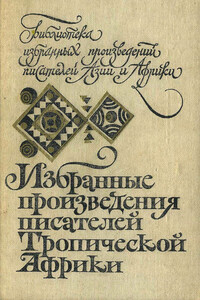36 Arguments for the Existence of God | страница 11
For months, Auerbach had only existed as a disembodied voice on the phone, always answering the “hello” with the announcement “Auerbach.” The image that the voice had conjured had been surprisingly on the mark, as Cass learned when he finally met the man at a packed reading Cass had given at the 92nd Street Y. This was almost a year after Auerbach had held the auction for Illusion that would make an unlikely millionaire and celebrity out of Cass Seltzer. Auerbach is a large and showily handsome man, with a petulant mouth and fine white hair, looking like milkweed that has burst its pod. He wore a dramatic white fedora and a flashy white suit. It was early summer and hot, but he looked the sort who might easily don a billowing Victorian cape when the weather turned cooler, and brandish a silver-tipped walking stick.
Auerbach, with his uncanny nose for intellectual property, hadn’t hesitated in accepting Cass as a client, unconcerned that there was already a glut of godlessness on the market. Atheist books were selling well, sometimes edging out cookbooks and memoirs written by household pets to rise to the top of the best-seller list. Though he never argues with success, his agent would probably be just as happy if the atheist with a soul went lighter on the soul.
The atheist with a soul. Cass always smiles at the absurdity of the phrase. But which is the more absurd element? The truth is-and what’s the good of a man contemplating an inhumanly frozen world at 4 a.m. if no truth-telling ensues?-that Cass is somewhat at a loss to account for what he has done. How to explain those Thirty-Six Arguments for the Existence of God (see Appendix), all of them formally constructed in the preferred analytic style, premises parading with military precision, and every shirking presupposition and sketchy implication forced out into the open and subjected to rigorous inspection?
Cass had started out with all the standard arguments for God’s existence, the ones discussed in philosophy classes and textbooks: The Cosmological Argument (#1), The Ontological Argument (#2), The Classical Teleological Argument (#3A), the arguments from Miracles, Moral Truths, and Mysticism (#’s 11, 16, and 22, respectively), Pascal’s Wager (#31), and William James’s Argument from Pragmatism (#32). He had also analyzed the new batch of arguments recently whipped up by the Intelligent Design crowd-to wit, The Argument from Irreducible Complexity (#3B), The Argument from the Paucity of Benign Mutations (#3C), The Argument from the Original Replicator (#3D), The Argument from the Big Bang (#4), The Argument from the Fine-Tuning of the Physical Constants (#5), and The Argument from the Hard Problem of Consciousness (#12). But then he had gone beyond these, too, attempting to polish up into genuine arguments those religious intuitions and emotions that are often powerfully evocative but too sub-syllogistic to be regarded as actual arguments. He had tried to capture under the net of analytic reason those fleeting shadows cast by unseen winged things darting through the thick foliage of the religious sensibility.


